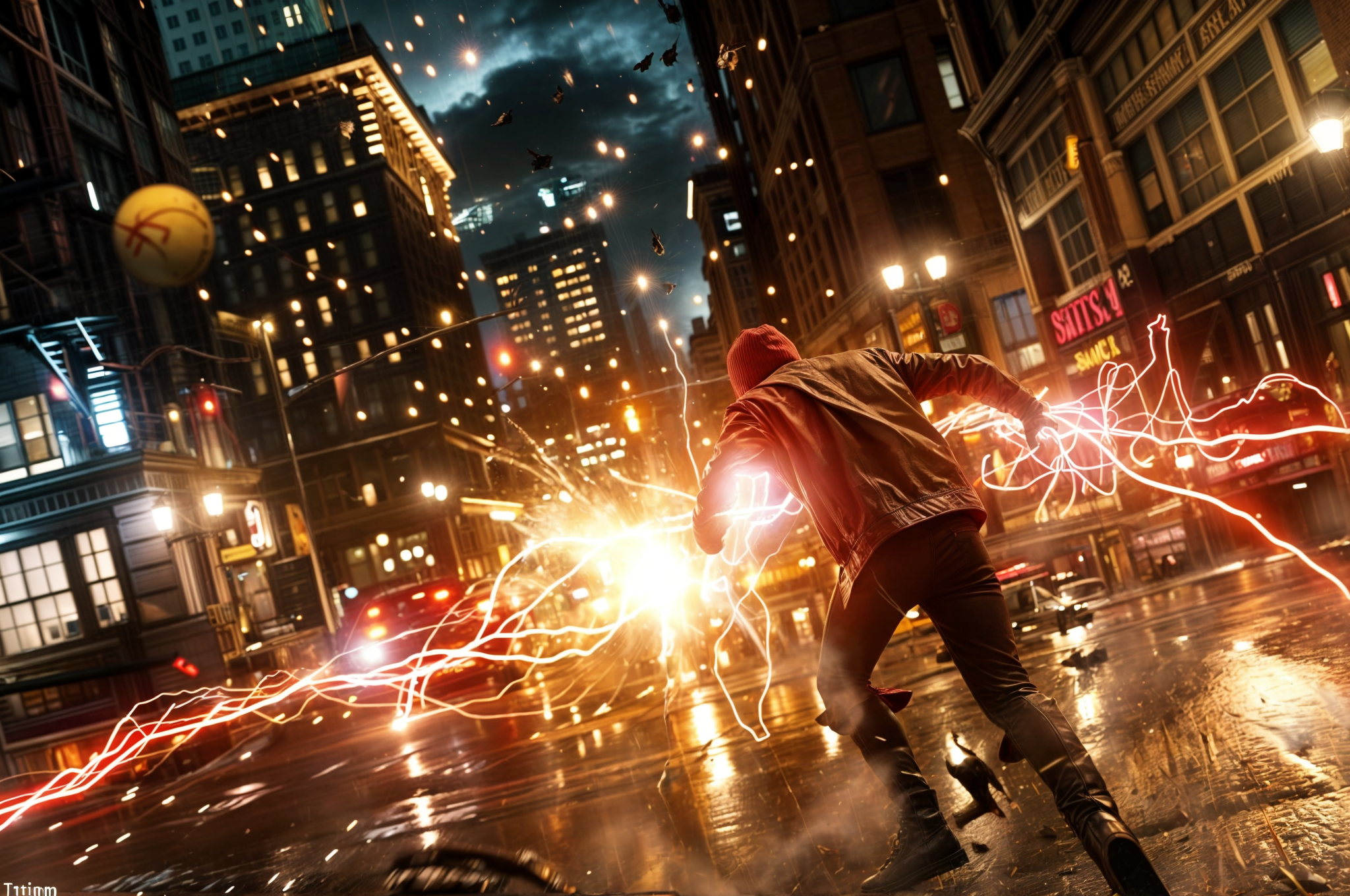Superhero Lingo: Decoding the Slang Used by Heroes and Villains
Decoding the Slang Used by Heroes and Villains.' Uncover the secret language that paints the contrast between heroes clad in capes and the villains they battle.

In a world where superpowers are as common as smartphones, it's no surprise that heroes and villains have developed their own unique language.
From the streets of Megalopolis to the secret lairs of the most notorious supervillains, a colorful array of slang terms and phrases have become an integral part of the superhero culture.
In this article, we'll dive into the fascinating world of superhero lingo and explore some of the most popular terms used by the caped crusaders and their nefarious counterparts.
One of the most common slang terms in the superhero world is "cape", which refers to any hero who wears a cape as part of their costume.
This term has become so ubiquitous that it's often used as a catch-all for any superhero, regardless of whether they actually wear a cape. For example, you might hear someone say, "Did you hear about that cape who stopped the bank robbery last night?"
On the flip side, villains have their own set of slang terms, one of the most popular being "Big Bad" This term is used to describe the most powerful and dangerous villain in a particular story or scenario. For instance, a hero might say, "We need to take down the big bad before they destroy the city."
Another popular term among heroes is "civvies," which is short for "civilian clothes."
When a hero needs to blend in with the general population, they'll often wear their civvies to avoid drawing attention to themselves. You might hear a conversation like, "Quick, change into your civvies before anyone spots us!"
Villains, too, have their own way of referring to their civilian identities. They often use the term "alter ego" to describe their non-villainous persona. For example, a villain might say, "I can't let anyone discover my alter ego, or my entire plan will be ruined."
When it comes to describing their powers, heroes and villains alike have a wide range of slang terms at their disposal. One common term is "juice," which refers to a character's superpowers or special abilities. You might hear a hero say, "I need to conserve my juice for the big fight later."
Another power-related term is "zap," which is often used to describe energy-based powers like laser vision or electricity manipulation.
A hero with these abilities might say, "I gave the bad guy a good zap, and he went down like a sack of potatoes."

Speaking of fighting, the superhero world has no shortage of slang terms related to combat.
One popular term is "throwdown," which refers to a big battle or confrontation. You might hear a hero say, "It's time for the ultimate throwdown between good and evil."
When a hero gets the upper hand in a fight, they might say they "clocked" their opponent, meaning they landed a solid punch or kick. On the other hand, if a villain gets the better of a hero, they might say they "put them on ice" which means they defeated or incapacitated them.
Of course, no discussion of superhero lingo would be complete without mentioning the various nicknames and aliases used by heroes and villains alike. From "The Caped Crusader" to "The Man of Steel" these monikers have become an integral part of the superhero culture and are instantly recognizable to fans around the world.
But it's not just the well-known heroes who have cool nicknames.
Even lesser-known characters often have their own unique aliases that reflect their powers or personalities. For example, a hero with ice powers might be known as "The Blizzard" while a villain with a penchant for technology might go by "The Techno-Menace"
In addition to these more general terms, each superhero team or organization often has its own set of slang words and phrases that are specific to their group.
For instance, the members of the Galactic Guardians might use terms like "starcruiser" and "warp drive" while the Street-Level Defenders might have their own set of slang related to urban crime-fighting.
Learning the lingo of the superhero world can be a fun and engaging way for fans to deepen their connection to their favorite characters and stories. It's also a great way for aspiring heroes and villains to feel like they're part of the action, even if they don't have powers of their own.
But superhero slang isn't just for fans and fictional characters.
In recent years, many of these terms have begun to make their way into mainstream pop culture, with words like "superhero" and "superpower" becoming common metaphors for excellence and achievement in various fields.
So the next time you hear someone use a term like "cape" or "big bad" don't be surprised – they might just be a secret superhero fan looking to add a little extra flair to their conversations. Who knows?
With the right lingo and a little bit of practice, you might just find yourself feeling like a true hero (or villain) in your own right.
As the world of superheroes continues to evolve and expand, so too will the unique language that these characters use to describe their experiences and adventures. Whether you're a die-hard fan or just a casual observer, learning the slang of the superhero world can be a fun and engaging way to deepen your appreciation for this beloved genre. So put on your cape (or your civvies), power up your juice, and get ready to dive into the colorful and exciting world of superhero lingo!
Unlock the full saga of superhero culture and its clandestine codes.
Subscribe now to delve deeper into the world of heroes and villains. Don't miss out on the next issue of adventure and intrigue!